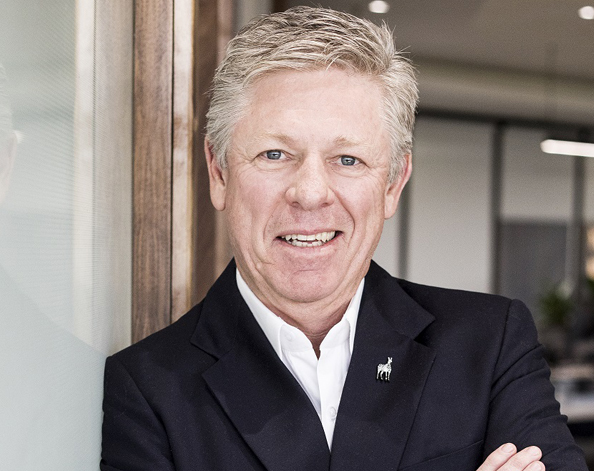NOW ep37: SA economic forecast: grey clouds with patches of sun
In a wide-ranging conversation, Investec Bank Limited CEO Richard Wainwright shares his insights on the recent IMF meetings in Washington, the impact of the pending FATF grey listing, the outlook for inflation and interest rates, and how the private sector is the best hope for solving SA’s infrastructure woes.
That is just one thread from a wide-ranging discussion on the Investec Focus Radio SA fortnightly podcast series No Ordinary Wednesday with special guest Investec Bank Limited CEO Richard Wainwright.
Wainwright returned recently from the Annual Meetings of the IMF, aimed at stirring discussion and gathering brain power around issues of global concern, including economic conditions, geopolitics, and the world’s financial system.
The inflation crisis
Against a backdrop of war, an inflation crisis, and severe economic turbulence across both developed and developing markets, the general atmosphere at the conference was fraught: “There's a sense of doom,” says Wainwright. “The Americans are cautiously optimistic, but the Europeans are very worried as are the British. You've seen the IMF give guidance on the expected GDP growth across the world, which is the lowest it’s been in quite some time, and there is anticipation for recession during 2023. So, it was sobering – but there is light at the end of the tunnel.”
Recession looms
When it comes to the recession forecast, Wainwright believes America will likely bounce back first. He also stresses the severity of China’s slowdown and its impact on the rest of the world, as well as the continuing effect of the war in Ukraine. Also high on the agenda at the IMF was global inflation and interest rate hikes, which Wainwright expects will continue into next year.
“Most of the world, led by the Americans, will stop increasing rates towards the end of 2023. All of the central banks around the world were late in hiking the rates. I must point out our central bank hiked well in advance. The governor of our central bank is very forward thinking. We have many other challenges, but our central bank reacted very fast to what was happening internationally, which has stood us in good stead.”
Investor sentiment
The stability and independence of the South African Reserve Bank are clear positives in the quest to attract desperately needed investment. However, with so many factors influencing the risk appetite of investors, Wainwright stressed the importance of seeing South Africa’s domestic challenges in the broader global context.

What we need is both domestic investment and international investment. We have huge infrastructure backlogs. Even though South Africa has a sophisticated banking and financial sector, we don't have enough domestic savings to invest in the infrastructure and the economy that's needed to get us on a growth path that will really create jobs
"(But) for investor sentiment to turn around, we need more certainty and stability internationally. Then they'll start looking at domestic issues and the challenges that we have and how our policy frameworks are changing.”
Policy certainty critical
Apart from the strength of our central bank, Wainwright pointed to several other attributes that make South Africa an attractive destination for foreign capital. These include a sophisticated financial market, well-respected corporates, and the recent commodity and agricultural booms.
“But we need to get a lot of work done on policy certainty,” he explains. “That's not going to happen this year, until the ANC elective conference is done. And then I'm hoping that we can look at policy issues around using the private sector more in infrastructure and reducing red tape.”
Grey listing already priced in
While there’s cause for hope, a real concern of investors is the potential “grey listing” of South Africa by the Financial Action Task Force (FATF) following an unfavourable review of our readiness to combat financial crime and financing of terrorism.
“This review is done by a number of countries from around the world, pretty much led by the Americans and the Europeans,” explains Wainwright. “They do a review of your anti-money laundering and terrorist financing legislation and how it's being executed and implemented by the banks and other financial service companies. And we failed on a lot of them.”
While Wainwright believes that South Arica’s inclusion on the grey list is highly likely, he adds that the downside will be limited if the country acts quickly to remediate shortcomings.
“The short-term impact of that will be minimal. It's a bad thing because you get bunched with a bad group of people. It's a sentiment issue, but the world understands it. The investors and the bankers that we talk to understand this. But if you're on the right track and doing the right things, they give you the benefit of the doubt in the short term. But the problem can compound very seriously. So, I would say if we stay on longer than 18 or 24 months, we could have some very serious issues.”
SA infrastructure challenges
Another concern is the parlous state of South Africa’s infrastructure, and in particular the provision of energy and transport, both of which are critical to running viable businesses and growing the economy. Says Wainwright: “The challenges around infrastructure, the ports, Transnet, loadshedding etc. are still there. We've become quite resilient. My colleagues in the UK now are coming to ask us how we deal with loadshedding. What I really worry about is smaller to mid-sized companies who can't afford to become resilient. And poorer people who can't afford solar or generators or inverters at their homes. That's where the real impact is.”
But Wainwright is encouraged by recent policy moves and statements by government calling for more participation from the private sector. In particular, he cites private-public partnerships in the transport sector and the recent lifting of restrictions of self-generation of power by private sector companies. “The important positive step was the mindset – the recognition that the state can't do this on its own anymore."
You can also sign up to the Investec Focus newsletter for our latest insights




